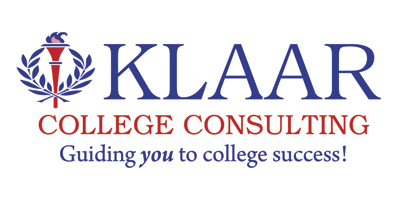There’s no substitute for being there. A well-planned visit to a college will reveal more useful information than its website, course catalog, statistical profile, and magazine rankings all put together.
College Visits Before and After
There are two stages in your college admissions campaign during which you should be visiting colleges. The first is in preparing your College List — the schools to which you’ll apply in senior year. Ideally, your visits should begin in junior year and continue until fall of senior year when you need to prepare your applications. It’s this Before stage that we focus on in this post.
The After stage comes late in senior year. It’s brief but important if you’ve been accepted to more than one school and are unsure which school to choose. Try to re-visit the contending colleges before May 1 to make a final comparison and decision. Stay overnight if possible.
Planning for Before Visits
Successful college visits require careful planning, so we recommend that you adopt a specific protocol for all visits. Doing so will enable you to compare “apples to apples” as much as possible.
First, we advise that you do your homework and research each college that interests you. Review the school’s website, especially the course catalogue and, within it, the requirements for the majors that you’re considering. Secondly, although magazine rankings can’t assess the qualitative factors that matter most to you in selecting a college, they compare peer institutions in quantifiable terms and so may come in handy as a quick reference source for such metrics. In addition, search the web for recent articles about colleges of interest in the news media.
In addition to enabling you to add or delete schools from your College List, the knowledge that you gain in this process will make apparent to admissions officers in interviews that you’re genuinely interested in their school.
Activities to Schedule During Visits
Make the time that you spend on campus as productive as possible. Wear comfortable shoes. Take notes and photos because you’ll usually be touring several colleges in one trip and they’ll tend to blur together. You’ll need to make arrangements for the activities below in advance.
1. Schedule an Interview: Your first task is to schedule an interview with the admissions office. This requires the most lead-time, so make the interview appointment well in advance.
2. Go on the Guided Tour: A student-led tour of the campus is a great way to begin a college visit. Schedule it with the admissions office and let them know if others will be accompanying you. Campus tours usually involve an Information session led by an administrator or faculty member after the tour.
3. Assess the Classroom Environment: During the school year, sit in on a class (with permission of the admissions office) that you would be taking as a freshman. Even in summer, there’s likely to be classes that you can attend to get a feel for the classroom environment.
4. Experience Campus Life: Nothing you do will tell you more about a college than staying in a dormitory and eating in a dining hall. If you have a choice, stay with sophomores. They know more than the current freshmen do about the school and they’re not yet as jaded as upperclassmen. If the admissions office won’t arrange a stay for you, try to make arrangements yourself if you know students at the school.
5. Learn More About Your Major: If you can do so through the admissions office, schedule meetings with a faculty member and a student in your probable major. You can use the meetings to ask questions about the curriculum and any special programs within the major.
6. View College Activities: For those students with sufficient time on campus, try to attend a campus event such as a student concert, stage performance, or sporting event to get a sense of the community.
7. Follow Your Interests: Seek permission to take your own tour of facilities that are of particular interest to you, such as concert halls, athletic facilities, science labs, art studios, and rehearsal spaces.
Try to avoid common mistakes. First, although you should always take the campus tour, realize that the student guides work for the college and are trained in how to respond to frequently asked questions. Their answers represent the official positions of the college administration. Independently investigate matters that are important to you. Never ask tour guides where else they were accepted or about their test scores or GPA.
Avoid judging a school based on one person’s opinion or any single fact. Keep thoughts about the probability of your admission separate from your impression of the school itself.
Also keep in mind, when visiting a campus in summer when the weather is pleasant, that it may be much different in winter. Consider whether the campus will appeal to you under winter conditions.
At Klaar College Consulting, we form a thorough understanding of you early in our engagement. We integrate your interests, talents, experiences, skills, preferences, and goals into a profile. This affects the advice we give you throughout your college admissions campaign, including your college road trips.
A Certified Educational Planner with 20-plus years of experience, Dr. Klaar is one of the nation’s top college consultants and has led hundreds of students to college success! For more information: Call 803-487-9777 or visit the www.cklaar.com.



